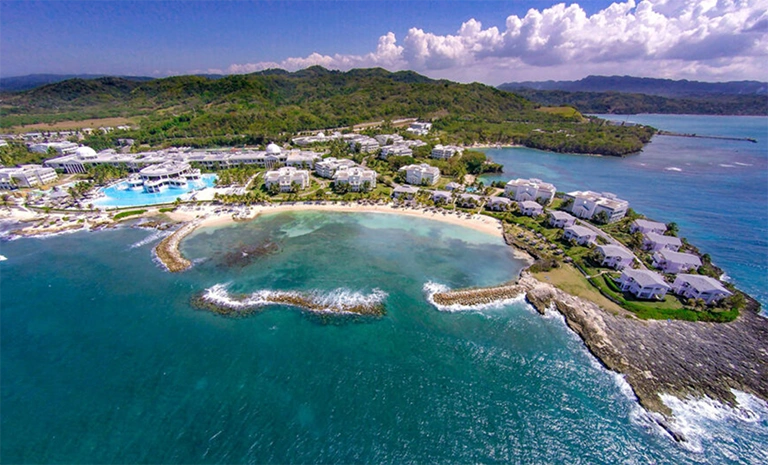Op-Ed: Green Energy Solutions Could Save the Caribbean $200 Million

By Jun Zhang
Op-Ed Contributor
HIGH ENERGY costs are the Achilles heel of the Caribbean.
More than 97 percent of this region’s electricity is generated from fossil fuels and many islands devote a hefty portion of their GDP to fuel imports.
On some Caribbean islands, electricity bills can soar up to six times higher than in the United States, which creates a burden for many local businesses. At the same time, these islands are vulnerable to the environmental impacts associated with fossil-fuels, including air pollution, rising sea levels, and coral bleaching.
Reducing the reliance on fossil fuels and supporting cleaner, more efficient energy production is critical to helping island economies grow sustainably. But many companies face hurdles in accessing credit to invest in clean energy.
That’s where the banking sector can play an important role.
The International Finance Corporation, a member of the World Bank Group and the largest global development institution focused exclusively on the private sector, is developing a regional programme to help local financial institutions provide the credit needed for companies to adopt more energy efficient practices and utilize cleaner energy sources.
This in turn can help reduce costs – and environmental footprints -for Caribbean hotels and other businesses.
At a recent seminar in Kingston, IFC presented a market analysis of sustainable energy finance opportunities in Barbados, Belize, Jamaica, Grenada, and St. Lucia.
It found that energy demands in the Caribbean are expected to double by 2027. Continued dependence on fossil fuels is likely to exacerbate pollution and other environmental impacts, while diverting significant resources from these economies. But there are upsides as well.
According to the analysis, incorporating energy efficiency measures across these five countries over the next few years could save approximately US$200 million. For example, solar water heaters offer a ready solution to water heating in the Caribbean.
Barbados has already installed more than 50,000 solar water heaters, saving the country some US$6.5 million a year on oil imports.
Caribbean countries could also benefit from water efficiency measures. Right now, anywhere from 25 to 65 percent of clean water is lost in inefficient water distribution systems, which also results in lost energy due to unnecessary pumping.
Some entrepreneurs say the tide is beginning to turn, but the financial sector needs to catch up.
“Businesses are already starting to shift to more energy efficient technologies,” said Andre Escalante, founder of Energy Dynamics, a Trinidad based company that helps hotels and other businesses adopt new energy-saving technologies. “However, financial institutions in the region are still reluctant to provide credits to implement new technologies that they may not be familiar with.”
IFC intends to close this knowledge gap by advising local financial institutions to help them meet the financing needs of sustainable energy projects. IFC also plans to work with energy service companies and equipment vendors to help them understand how to best structure projects for financing.
In the Dominican Republic, IFC helped Banco BHD become the first financial institution in the country to offer a credit line to finance sustainable energy projects. Over two years, BHD provided US$24 million in financing for projects that are bringing more cost-efficient energy solutions to the Dominican Republic, from natural gas conversion to solar energy.
“We’ve seen first-hand how sustainability adds value, be it by helping hotels cut their energy costs or by financing solar energy solutions for businesses,” said Steven Puig, General Manager of Banco BHD. “In fact, BHD intends to implement energy efficiency measures and install solar panels on each of its 43 stand-alone bank branches. So far, with IFC’s support, four offices have done this, which resulted in US$43,000 in savings each year as well as reductions in greenhouse gas emissions.”
Sustainability presents challenges for businesses, but also wide-ranging, evolving opportunities — especially as the cost of renewable energy technologies goes down. The private sector is well suited to innovate and leverage new technologies to turn challenges into opportunities.
Jun Zhang is IFC’s Senior Manager for the Caribbean. IFC, a member of the World Bank Group, is the largest global development institution focused exclusively on the private sector.
Note: the opinions expressed in Caribbean Journal Op-Eds are those of the author and do not necessarily reflect the views of the Caribbean Journal.







